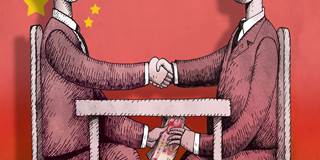
The Global Stake in China’s Anti-Corruption Reform
China’s export-led growth, which previously masked the macroeconomic costs of corruption and excessive state intervention, is slowing. As China enters an era of more subdued growth amid increased competition from other low-cost countries, this damage will become increasingly apparent – and increasingly destructive.
STANFORD – The recent trial of Bo Xilai highlighted the biggest challenge facing contemporary China: the corruption and abuse of power by some government and party officials. Until his fall, Bo, a former Politburo member and party leader of Chongqing, a megacity of 30 million people, was a potential candidate for China’s ruling seven-member Politburo Standing Committee.